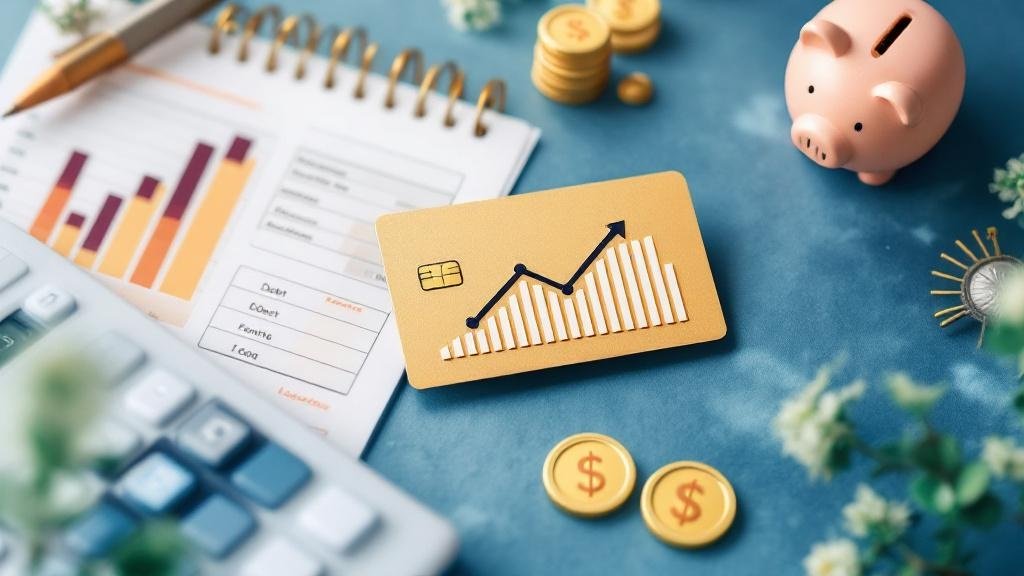In today’s fast-paced world, managing debt can feel like an uphill battle. Whether you’re dealing with credit card balances, student loans, or personal loans, the road to becoming debt-free might seem daunting. But fear not—there are effective budget tips for debt repayment that can help you get out of debt faster while reducing stress and building a secure financial future.
In this guide, we’ll explore practical budgeting strategies, debt repayment methods, and tips to pay off your debt efficiently, so you can live a debt-free life sooner than you think.
Understanding Debt Repayment: The First Step Towards Freedom
Before we dive into the tips, let’s understand why debt repayment is crucial for your financial well-being. While debt may seem unavoidable at times, it’s important to acknowledge the weight it carries on your credit score, future financial goals, and peace of mind.
When left unchecked, debt can accumulate with interest, leaving you stuck in a cycle of payments. That’s why repaying debt should be a priority. But the key to doing this without stress is by creating a solid budget plan and sticking to it.
Budgeting for Debt Repayment: The Key to Financial Freedom
Effective budgeting is the cornerstone of debt repayment. Managing your money effectively will allow you to pay off debt without compromising your daily needs. Here’s how to craft a budget plan for debt reduction:
1. Track Your Expenses
Start by analyzing your income and expenses. Understand where your money is going each month. Are there any unnecessary subscriptions you can cancel? Could you save more on groceries? The more you understand your spending habits, the easier it will be to allocate money towards your debt repayment.
2. Categorize Your Expenses
Make a list of fixed and variable expenses. Fixed expenses are things like rent, utilities, and loan repayments, while variable expenses could include food, entertainment, and shopping. Prioritize the essential expenses and reduce discretionary spending.
3. Create a Debt Repayment Fund
Set aside a specific portion of your income for debt repayment every month. This will prevent you from dipping into your general savings and ensure that your debt is tackled systematically.
4. Use Budgeting Apps for Debt Pay-Off
There are several budgeting apps that can help you stay on track with your debt repayment plan. Apps like Mint, YNAB (You Need A Budget), and EveryDollar can help you track your spending, create budgets, and even set goals for your debt repayment.
Debt Repayment Strategies: Pay Off Debt Faster
There are several methods available to help you pay off your debt faster. These strategies are proven to work when applied with discipline. Let’s look at two of the most popular debt repayment strategies: the Debt Snowball Method and the Debt Avalanche Method.
Debt Snowball Method: Small Wins for Big Results
The debt snowball method focuses on paying off your smallest debt first, regardless of the interest rate. The idea is that by paying off the smallest balance, you get a psychological win, which motivates you to tackle the next debt. Here’s how to use the debt snowball method:
-
List your debts from smallest to largest.
-
Make minimum payments on all debts except for the smallest one.
-
Put all extra money towards paying off the smallest debt.
-
Once it’s paid off, move on to the next smallest debt.
Debt Avalanche Method: Save Money by Tackling High-Interest Debts
The debt avalanche method is more financially efficient but requires a bit more patience. With this method, you prioritize paying off debts with the highest interest rates first, which reduces the total interest you pay over time. Here’s how to use the debt avalanche method:
-
List your debts from highest to lowest interest rate.
-
Make minimum payments on all debts except the one with the highest interest rate.
-
Put all extra funds towards paying off the highest-interest debt.
-
Once it’s paid off, move on to the next debt with the highest interest rate.
Managing Debt on a Budget: Extra Tips to Stay on Track
Paying off debt is more than just following a repayment strategy; it’s about making smart financial decisions every day. Here are a few extra tips for managing debt on a budget:
1. Set Financial Goals
Set clear financial goals for your debt repayment. Whether it’s paying off a credit card in six months or becoming debt-free in two years, having a goal helps you stay focused and motivated.
2. Emergency Fund and Debt Repayment
While it’s tempting to throw every spare dollar at your debt, don’t forget the importance of an emergency fund. Having a financial cushion can prevent you from going into more debt if an unexpected expense arises. Aim for at least $1,000 in emergency savings.
3. Consolidate Debt
If you’re juggling multiple debts, consider consolidating them into one loan. Debt consolidation can simplify your payments, lower your interest rate, and potentially reduce your monthly payment. However, ensure that the new loan’s interest rate is lower than what you’re currently paying.
4. Extra Payments to Pay Off Debt Faster
If you receive a tax refund, bonus, or any extra cash, consider using it to make additional payments towards your debt. Even small extra payments can significantly reduce the time it takes to pay off your debt and save you money on interest.
How to Handle Multiple Debts: Strategies for Success
If you’re dealing with multiple debts, it can be overwhelming. But with the right strategies, it’s possible to pay them all off without feeling stressed. Here are some tips for handling multiple debts:
1. Prioritize Your Debts
Use one of the methods we discussed (debt snowball or debt avalanche) to prioritize which debts to pay off first. Once your highest-interest debt is paid off, move on to the next one. This will help you stay organized and ensure you’re not missing any payments.
2. Use Debt Management Services
If you’re struggling to stay on top of your debt, consider using debt management services. These companies can help you negotiate lower interest rates and consolidate your debts into one manageable monthly payment. Make sure to choose a reputable company to avoid scams.
3. Set Realistic Payment Goals
While it’s tempting to pay off your debt as quickly as possible, be realistic about what you can afford. If you’re paying off a large amount of debt, it’s better to have a longer repayment period that fits your budget than to overextend yourself.
Debt-Free Living Tips: How to Stay Debt-Free After Paying Off Your Debt
Becoming debt-free is a major accomplishment, but it’s important to stay debt-free once you’ve achieved that goal. Here are some tips to help you maintain a debt-free lifestyle:
-
Stick to Your Budget: Continue budgeting after you’ve paid off your debt to ensure that you’re saving for the future and avoiding unnecessary spending.
-
Save for Future Expenses: Set aside money for big expenses like vacations, car repairs, and home improvements, so you won’t need to take on debt in the future.
-
Build an Emergency Fund: If you haven’t already, continue building your emergency fund to cover unexpected costs without relying on credit cards.
FAQs About Debt Repayment
1. What is the best strategy for debt repayment?
The best strategy depends on your financial situation. The debt snowball method is great for quick wins, while the debt avalanche method saves you more money over time. Both strategies are effective, but you should choose the one that keeps you motivated.
2. How can I pay off debt faster with a limited income?
Focus on cutting non-essential expenses and redirecting that money towards your debt. You can also look for ways to increase your income, such as picking up a side job or selling unused items.
3. Should I save while repaying debt?
Yes! Building an emergency fund while repaying debt can help you avoid taking on more debt in the future. Aim to save at least $1,000 for emergencies while working on your debt.
4. How do I prioritize debt payments?
Prioritize high-interest debts if you’re using the debt avalanche method. If you’re using the snowball method, prioritize the smallest debt first to gain momentum.
5. Can I consolidate my debt into one loan?
Yes, debt consolidation is an option if you’re dealing with multiple debts. It can simplify your payments and potentially lower your interest rates, but make sure to compare options before committing.








Comments (0)